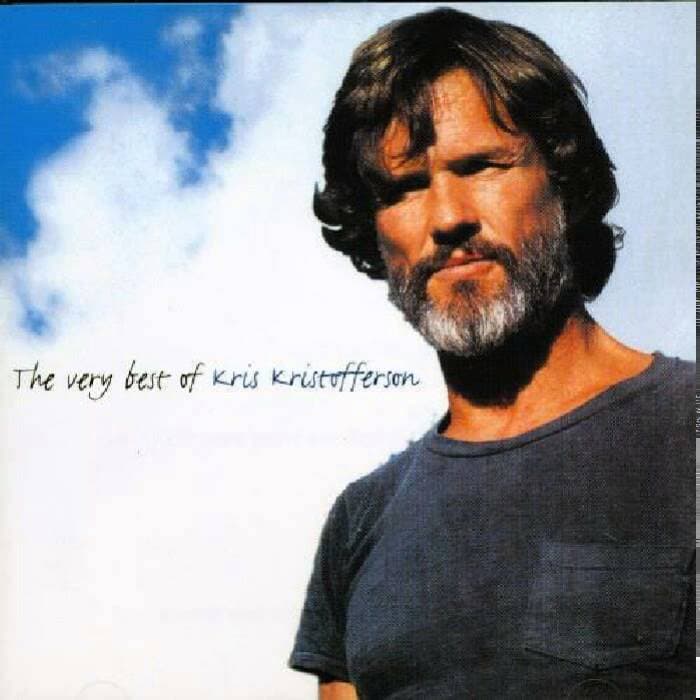
Kris Kristofferson – “The Pilgrim, Chapter 33”: A Self-Reflective Ode to the Wanderer
“The Pilgrim, Chapter 33” is one of Kris Kristofferson’s most introspective and autobiographical songs, capturing the essence of the wandering soul who refuses to conform to society’s norms. Released in 1971 on his second album The Silver Tongued Devil and I, the song showcases Kristofferson’s sharp lyrical abilities, as well as his gift for weaving deeply personal themes into universal narratives. As a singer-songwriter, Kristofferson has always had a knack for portraying the human condition with brutal honesty, and “The Pilgrim, Chapter 33” stands as a testament to that.
At its core, the song is about the contradictory nature of the human spirit—particularly, the dichotomy between being a dreamer and a realist. “The Pilgrim, Chapter 33” paints a picture of a man who has experienced life’s highs and lows, who has lived recklessly but also carries the weight of wisdom from his journey. Kristofferson, drawing from his own experiences, offers up a character who’s both a seeker and a lost soul—“a walking contradiction, partly truth and partly fiction”—words that many have said encapsulate the songwriter himself.
The song was inspired by a combination of individuals who influenced Kristofferson’s life. Friends and mentors, like Johnny Cash, Ramblin’ Jack Elliott, and Dennis Hopper, served as muses for the “pilgrim” character, but Kristofferson also injected a heavy dose of self-reflection into the lyrics. It’s a song that embraces the imperfections of life, the messiness of existence, and the beauty of finding one’s own path, no matter how unconventional or misunderstood it may be.
Musically, the song carries a laid-back, country-folk vibe, which complements the reflective tone of the lyrics. The acoustic guitar-driven melody is simple yet effective, allowing Kristofferson’s raw, unadorned vocals to take center stage. His voice, often described as gravelly and world-weary, adds depth to the song’s narrative, making it feel like a personal confession or a philosophical musing shared around a campfire. The stripped-down arrangement serves to highlight the poignant nature of the lyrics, making the listener focus on the words and the story being told.
Lyrically, “The Pilgrim, Chapter 33” speaks to the trials of life on the road, the weariness that comes with constant searching, and the desire for a deeper understanding of one’s place in the world. It’s a song about acceptance—of one’s flaws, mistakes, and all the roads traveled. Kristofferson doesn’t glorify the pilgrim’s lifestyle; instead, he presents it with a sense of resigned clarity. The pilgrim may be flawed, but he’s also authentic, and that authenticity is what makes the character, and by extension the song, so compelling.
Upon its release, “The Pilgrim, Chapter 33” didn’t achieve the same commercial success as some of Kristofferson’s other hits, like “Me and Bobby McGee” or “Help Me Make It Through the Night.” However, it has remained a favorite among fans and critics alike for its depth and honesty. The song embodies Kristofferson’s philosophy of living life on one’s own terms, despite the consequences, and resonates deeply with those who appreciate songs that tell a story with raw, emotional truth.
For Kristofferson, this song marked a continuation of his ability to bridge the gap between traditional country music and a more introspective, almost literary style of songwriting. His work in the early 1970s, including “The Pilgrim, Chapter 33,” helped redefine the boundaries of what country music could be, incorporating elements of folk, rock, and existentialism that were rare in the genre at the time.
Though it may not have topped the charts, “The Pilgrim, Chapter 33” holds a special place in the hearts of Kristofferson’s devoted fans and remains a shining example of his unique storytelling prowess. It’s a song that speaks to anyone who has ever felt like they don’t quite fit in, anyone who has ever wandered in search of meaning, and anyone who understands that life’s greatest lessons often come from the journey rather than the destination.